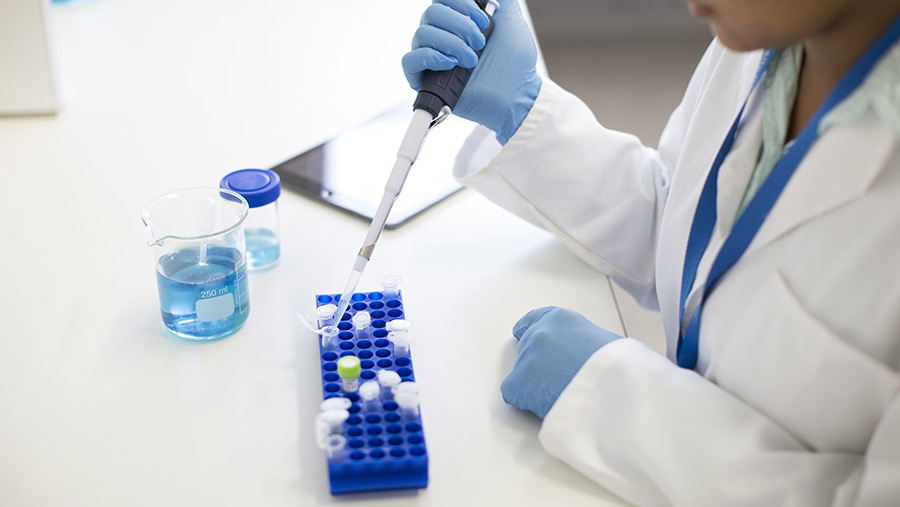Poll: Should we allow gene editing of livestock in the UK?
 ©Blend Images/Rex Shutterstock
©Blend Images/Rex Shutterstock The potential to make our own legislation post Brexit could provide scope for gene editing of livestock to become mainstream in the UK, but are farmers and the public open to using the technology?
Various gene-editing projects are being run across the globe, with much of the work focusing on editing for traits that will benefit animal health and welfare.
This includes breeding pigs that are resistant to porcine reproductive and respiratory syndrome (PRRS) and producing polled dairy animals to put an end to the low welfare practice of dehorning.
See also: Opinion: Gene editing can lift productivity post Brexit
Gene editing changes a very small, precise bit of the genome to alter gene expression.
This could involve deleting part of a gene or the whole of a gene or deleting a single base pair (which make up DNA) or swapping bases.
Changes in base pairs occur naturally, so this can be likened to taking control of a natural process. In comparison, genetic modification (GM) causes deactivation of a gene or adds genes from a difference animal/species.
Gene editing has traditionally been put in the same bracket as GM, making it illegal for gene-edited livestock to enter the food chain in the EU.
However, there are signs the UK government could be open to changing tack after Brexit.
In his address at this year’s Oxford Farming Conference, environment secretary Michael Gove highlighted gene editing as one of a number of technologies, which could help drive productivity, while improving efficiencies and environmental sustainability.
He said: “Gene editing holds out the promise of dramatically accelerating the gains we have secured through selective breeding in the past.”
Gene editing was only referenced in relation to the development of crops. However, the fact Mr Gove is open to talking publicly and positively about the use of gene editing in farming suggests the opening of a door that could lead to its use in livestock.
However, the ethics surrounding whether we should “play God” and gene edit animals and how it should be used – together with public perception – could ultimately put an end to the technology being adopted by Brits.
